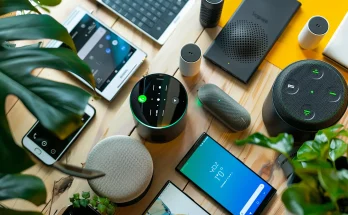In today’s fast-paced world, maintaining mental health and wellness can be quite challenging. Mindfulness has emerged as a powerful tool to enhance mental well-being by grounding individuals in the present moment and reducing stress. This blog explores simple, everyday techniques that can help integrate mindfulness into your daily routine, ultimately leading to better mental health.
Importance of Mindfulness in Daily Life
Reducing Stress and Anxiety: Practicing mindfulness can significantly lower stress and anxiety levels by encouraging a state of awareness and acceptance of one’s current experiences.
Enhancing Focus and Concentration: Regular mindfulness exercises improve concentration and focus, helping individuals perform better at work and other daily activities.
Improving Emotional Health: By fostering a greater awareness of emotions and thoughts, mindfulness helps individuals manage overwhelming feelings more effectively, promoting emotional resilience.
How to Incorporate Mindfulness into Your Daily Routine
Starting with Meditation: Begin your day with a short meditation session. This could be as simple as five minutes of focused breathing or a guided meditation using apps or online resources.
Mindful Eating: Transform meal times into mindful experiences. This involves paying attention to the taste, texture, and aroma of your food, which can enhance your dining experience and prevent overeating.
Taking Mindful Breaks: Throughout the day, take short breaks to practice mindfulness. This could be a brief period of deep breathing, observing your surroundings without judgment, or listening attentively to sounds.
Mindful Walking: Turn ordinary walks into mindful exercises by focusing on the sensation of your feet touching the ground, the rhythm of your breath, and the sights and sounds around you.

Techniques Available After Integrating Mindfulness
Body Scan Meditation: This involves mentally scanning your body for areas of tension and consciously relaxing those areas, promoting physical and mental relaxation.
Mindful Listening: Engage in conversations with full attention, without distractions, which can enhance your relationships and communication skills.
Journaling: Maintain a mindfulness journal to reflect on your daily experiences and insights, which can enhance self-awareness and personal growth.
Benefits of Practicing Mindfulness Regularly
Improved Mental Health: Regular mindfulness practice is linked to reduced symptoms of depression and anxiety, fostering a healthier mental state.
Increased Physical Well-being: Mindfulness can lower blood pressure, reduce chronic pain, and alleviate gastrointestinal difficulties.
Enhanced Overall Well-being: Practicing mindfulness can lead to better sleep, greater satisfaction with life, and improved overall well-being.
Tips for Deepening Your Mindfulness Practice
Attend Mindfulness Workshops or Retreats: Participate in workshops or retreats to deepen your understanding and practice of mindfulness.
Explore Different Forms of Mindfulness: Beyond meditation, explore yoga, Tai Chi, or other mindful movement practices to enhance physical and mental health.
Stay Consistent: Consistency is key in mindfulness practice. Aim to incorporate it into your daily routine, even if only for a few minutes at a time.
Security Measures for Practicing Mindfulness
Safe Practice: Always ensure that your mindfulness practice is safe, especially when trying new physical activities like yoga or Tai Chi.
Mindful of Personal Limits: Be aware of your physical and emotional limits while practicing mindfulness and do not force any practice that feels uncomfortable.
Privacy During Practice: Choose a private, quiet space for mindfulness practices to avoid distractions and ensure a peaceful environment.
Mindfulness Mobile Apps
Overview: There are several mobile apps designed to facilitate mindfulness practice. These apps offer guided meditations, breathing exercises, and other resources to support your practice.
Features and Functionality: Apps typically feature a range of guided sessions on different topics, progress tracking, and personalized mindfulness journeys.
Convenience and Accessibility: With mobile apps, you can practice mindfulness anytime, anywhere, making it easier to maintain consistency.
In conclusion, integrating mindfulness into your daily life can unlock numerous benefits for your mental, emotional, and physical health. Starting with simple techniques and gradually expanding your practice can lead to significant improvements in overall well-being and quality of life. Whether you are new to mindfulness or looking to deepen your practice, there is no better time to start than now.
FAQs
What is mindfulness?
Mindfulness is the practice of being fully present and engaged in the moment, aware of your thoughts and feelings without distraction or judgment.
How does mindfulness improve mental health?
Mindfulness helps by reducing stress, enhancing your ability to manage emotions, improving focus and attention, and increasing overall mental and emotional resilience.
Can mindfulness help with anxiety?
Yes, numerous studies have shown that mindfulness can significantly reduce symptoms of anxiety by helping individuals learn to calm their minds and be less reactive to stress-inducing thoughts.
How long should I practice mindfulness each day?
Even a few minutes of mindfulness each day can be beneficial. Start with 5-10 minutes daily and increase the duration as you feel comfortable.
Do I need special equipment to practice mindfulness?
No special equipment is needed. Mindfulness can be practiced anywhere, whether you’re sitting, walking, or even doing routine tasks like washing dishes.
Is mindfulness suitable for everyone?
Mindfulness is a versatile practice that can be adapted for individuals of all ages and backgrounds. However, those with severe mental health issues should consult with a healthcare provider to ensure it complements their treatment plan effectively.



